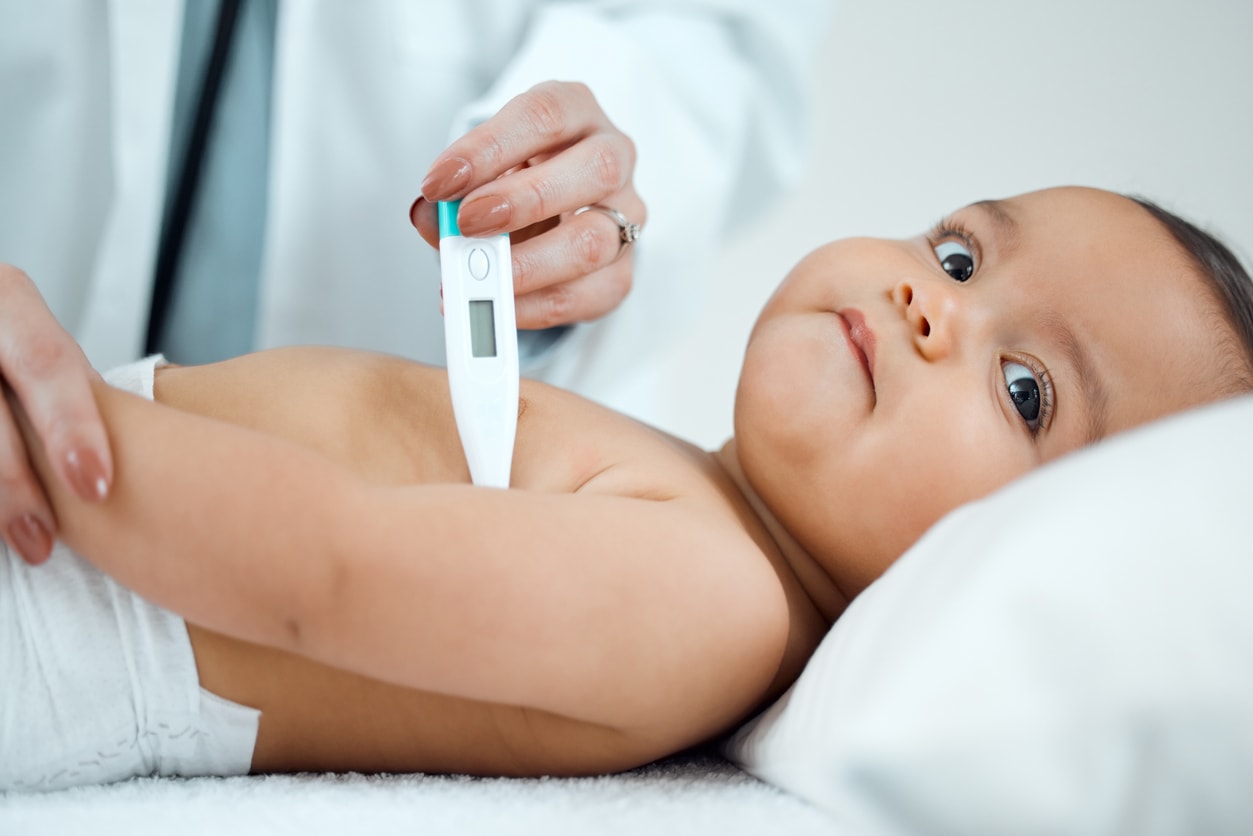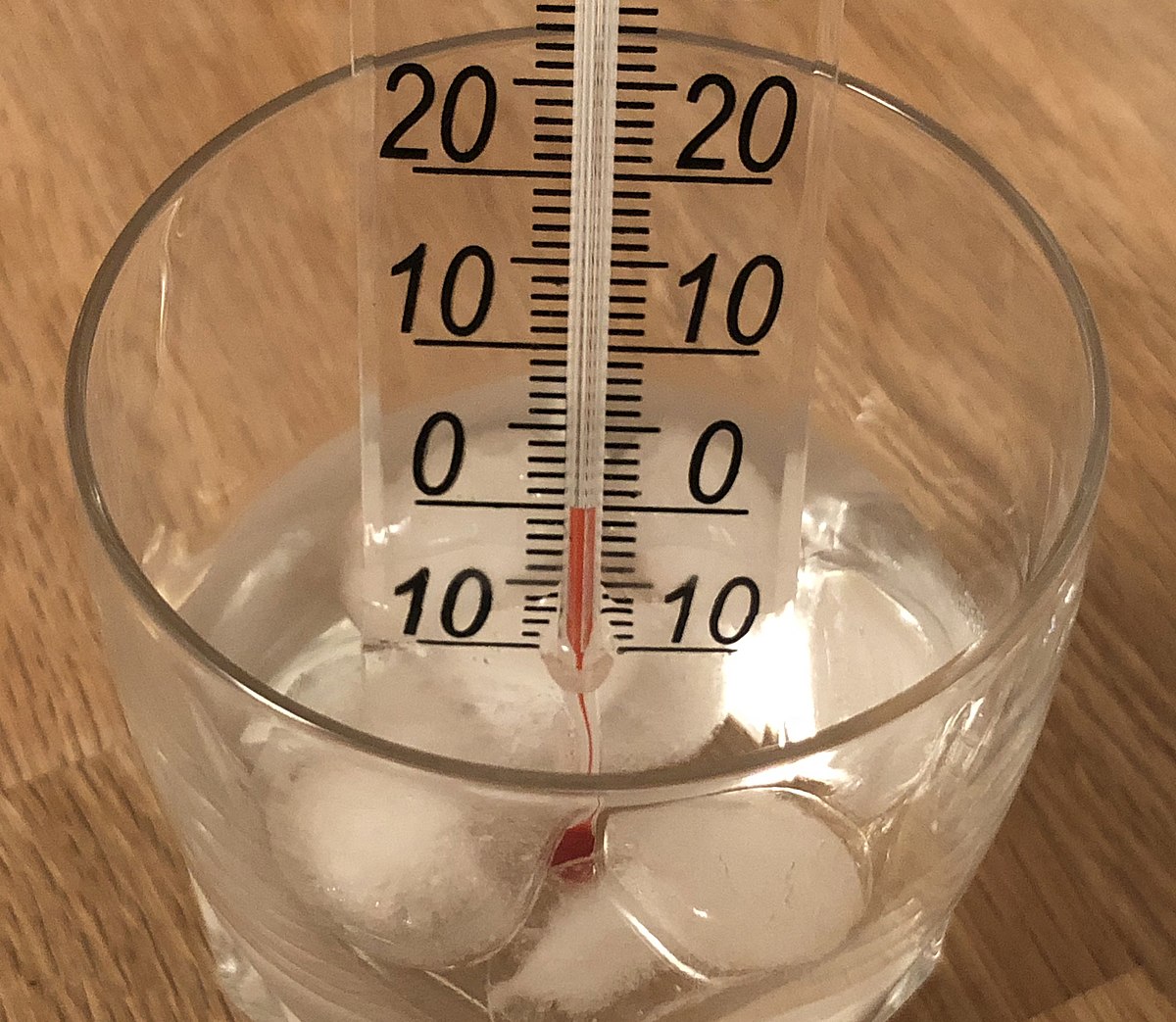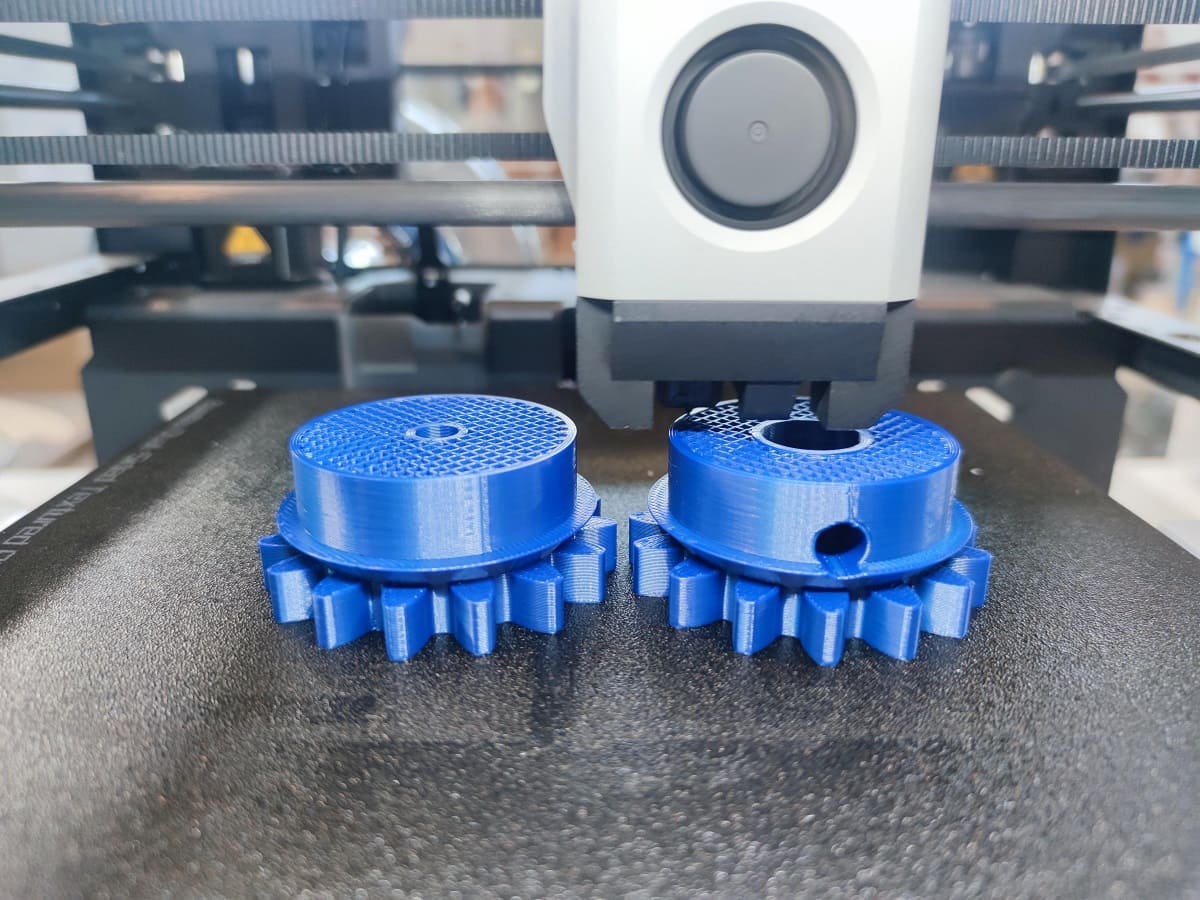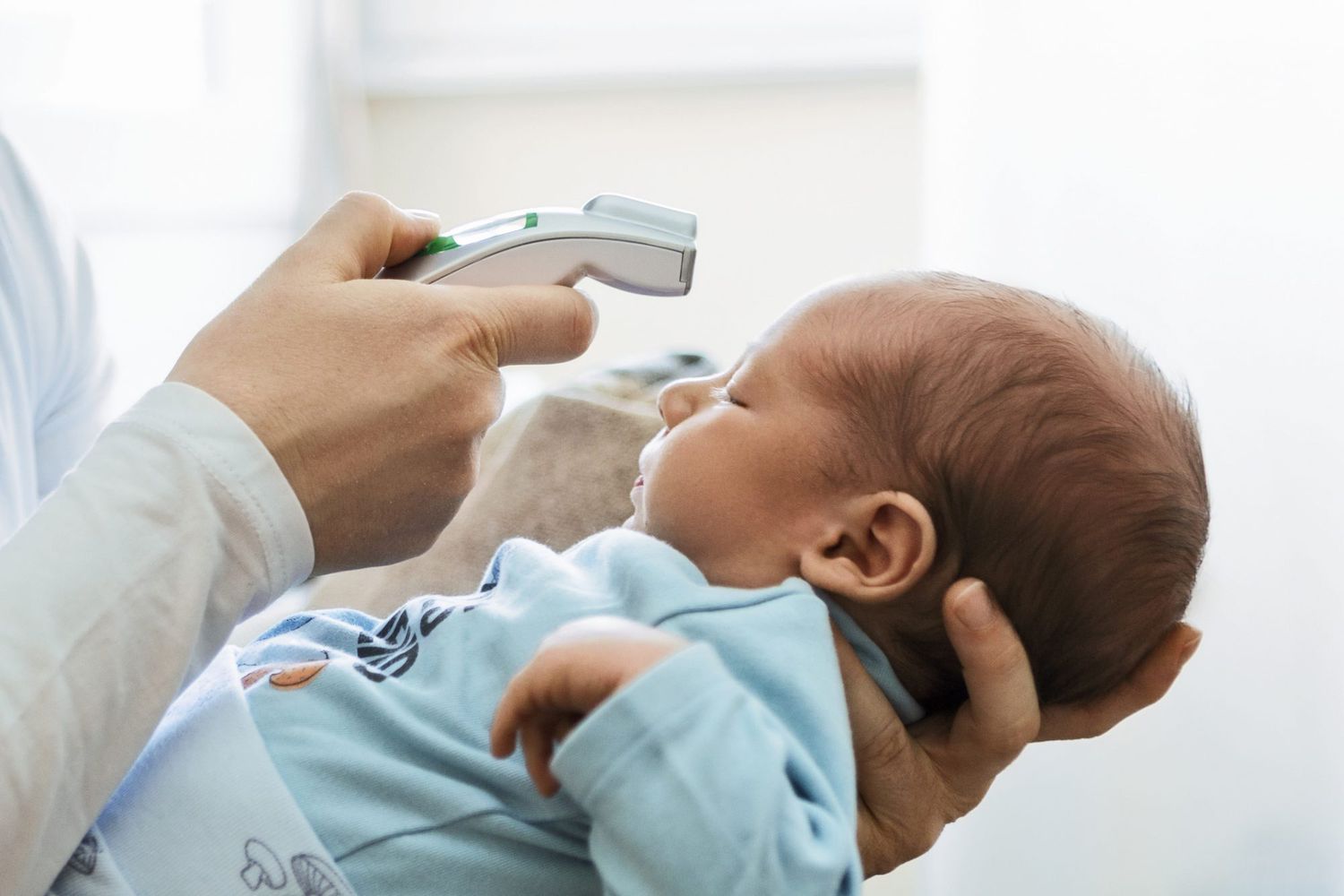Home>Health & Nutrition>Optimal Baby Body Temperature: Understanding The Normal Range


Health & Nutrition
Optimal Baby Body Temperature: Understanding The Normal Range
Published: February 19, 2024
Ensure your baby's health & nutrition by understanding the optimal body temperature range. Learn about normal ranges and how to keep your baby safe.
(Many of the links in this article redirect to a specific reviewed product. Your purchase of these products through affiliate links helps to generate commission for Temperatures.com, at no extra cost. Learn more)
Table of Contents
Importance of Maintaining the Right Body Temperature for Babies
Ensuring that babies maintain the right body temperature is crucial for their overall health and well-being. Newborns and infants are particularly vulnerable to temperature fluctuations, as their bodies are still developing the ability to regulate temperature effectively. Here's why maintaining the optimal body temperature is of paramount importance for babies:
-
Vital Organ Function: A stable body temperature is essential for the proper functioning of a baby's vital organs. When the body temperature strays from the normal range, it can negatively impact organ function, potentially leading to complications.
-
Metabolic Balance: The body's metabolic processes, including enzyme activity and energy production, are intricately linked to maintaining the right body temperature. Fluctuations in temperature can disrupt these processes, affecting the baby's overall metabolic balance.
-
Immune System Support: Optimal body temperature plays a pivotal role in supporting a baby's developing immune system. When the body temperature is within the normal range, the immune system functions optimally, helping to protect the baby from infections and illnesses.
-
Neurological Development: Research indicates that maintaining the right body temperature is crucial for healthy neurological development in infants. Fluctuations in body temperature can potentially impact neurological functions, highlighting the significance of temperature regulation in supporting the baby's cognitive and motor skills development.
-
Comfort and Well-being: Babies who are within the normal body temperature range are more likely to be comfortable and content. Maintaining a comfortable body temperature is essential for promoting overall well-being and ensuring that the baby feels secure and at ease.
In summary, maintaining the right body temperature is vital for ensuring the proper functioning of a baby's organs, supporting metabolic balance, bolstering the immune system, facilitating neurological development, and promoting overall comfort and well-being. Understanding the importance of temperature regulation is fundamental for caregivers and parents in providing the best possible care for their little ones.
Factors Affecting Baby Body Temperature
Several factors can influence a baby's body temperature, and understanding these variables is crucial for ensuring the well-being of the little one. Here are the key factors that can affect a baby's body temperature:
-
Environmental Conditions: The environment in which the baby is situated plays a significant role in regulating their body temperature. Exposure to extreme heat or cold can cause fluctuations in body temperature. It's essential to maintain a comfortable ambient temperature in the baby's living spaces, ensuring that they are neither too hot nor too cold.
-
Clothing and Bedding: The type of clothing and bedding used for the baby can impact their body temperature. Dressing the baby in appropriate layers and using suitable bedding materials is essential for maintaining a comfortable and safe body temperature. Overdressing or using excessive bedding can lead to overheating, while inadequate clothing or bedding can result in the baby getting too cold.
-
Feeding and Hydration: Proper nutrition and hydration are vital for regulating a baby's body temperature. Ensuring that the baby is adequately fed and hydrated supports their metabolic processes, which in turn helps maintain a stable body temperature. For infants, proper breastfeeding or formula feeding at regular intervals is essential for meeting their nutritional needs and supporting temperature regulation.
-
Illness and Infection: Illnesses and infections can significantly impact a baby's body temperature. Fever is a common symptom of many childhood illnesses and can lead to elevated body temperature. Monitoring the baby's temperature and seeking medical attention when necessary is crucial when they are unwell.
-
Physical Activity: Babies' body temperature can be influenced by their level of physical activity. Engaging in active play or being bundled up in layers during outdoor activities can lead to an increase in body temperature. It's important to ensure that the baby remains comfortable and appropriately dressed during physical activities to prevent overheating.
-
Emotional State: A baby's emotional state can also affect their body temperature. Stress, anxiety, or discomfort can lead to fluctuations in body temperature. Providing a nurturing and secure environment for the baby can help maintain emotional well-being, which, in turn, supports stable body temperature regulation.
Understanding these factors and their potential impact on a baby's body temperature is essential for caregivers and parents. By being mindful of these variables, caregivers can take proactive measures to ensure that the baby's body temperature remains within the normal range, promoting their overall health and well-being.
Signs of Abnormal Baby Body Temperature
Recognizing the signs of abnormal body temperature in babies is crucial for identifying potential health concerns and taking prompt action to ensure the well-being of the little one. Here are the key indicators that caregivers should be vigilant about:
-
Fever: One of the most evident signs of abnormal body temperature in babies is fever. A rectal temperature of 100.4°F (38°C) or higher is considered a fever in infants under three months old. For older infants, a fever is typically indicated by a rectal temperature of 102°F (38.9°C) or higher. It's important to note that fever in babies can be a symptom of an underlying infection or illness, necessitating immediate attention.
-
Chills and Shivering: If a baby is experiencing chills and shivering, it may indicate that their body temperature is dropping below the normal range. This can occur when the baby is exposed to cold temperatures or is inadequately dressed for the environment. Caregivers should ensure that the baby is appropriately clothed and kept in a comfortable, warm environment to prevent further temperature decline.
-
Flushed or Pale Skin: Changes in the baby's skin color can be indicative of abnormal body temperature. Flushed, red skin may signal elevated body temperature, while pale or bluish skin may indicate that the baby is too cold. Monitoring the baby's skin color can provide valuable insights into their body temperature status.
-
Irritability or Lethargy: Abnormal body temperature can impact a baby's behavior. They may become irritable, fussy, or unusually lethargic when their body temperature is outside the normal range. Caregivers should pay attention to changes in the baby's demeanor, as these can be subtle yet significant indicators of temperature-related discomfort.
-
Sweating or Clamminess: Excessive sweating or clammy skin can be signs of abnormal body temperature. Babies may sweat profusely when they are overheated, while clamminess can indicate that their body temperature is dropping too low. Monitoring the baby's skin moisture levels can provide valuable clues about their temperature status.
-
Poor Feeding or Appetite Changes: When babies experience abnormal body temperature, they may exhibit changes in their feeding patterns. This can manifest as decreased appetite, reluctance to feed, or general feeding difficulties. Caregivers should be attentive to any alterations in the baby's feeding behavior, as these can be linked to temperature-related discomfort.
-
Respiratory Changes: Abnormal body temperature can impact a baby's respiratory patterns. Rapid breathing, shallow breaths, or noticeable changes in the baby's respiratory rate may indicate temperature-related distress. Monitoring the baby's breathing and seeking medical advice if irregularities are observed is essential.
By being vigilant for these signs of abnormal body temperature, caregivers can promptly address any temperature-related concerns and ensure the baby's well-being. It's important to remember that each baby is unique, and caregivers should seek medical advice if they have any doubts or concerns about the baby's body temperature.
Tips for Monitoring and Maintaining Baby's Body Temperature
Monitoring and maintaining a baby's body temperature is a critical aspect of infant care, ensuring their comfort, health, and overall well-being. Here are essential tips for caregivers to effectively monitor and regulate a baby's body temperature:
1. Use a Reliable Thermometer
Invest in a high-quality digital thermometer specifically designed for infants. Rectal thermometers are considered the most accurate for babies under three months old, while temporal artery or tympanic thermometers are suitable for older infants. Ensure that the thermometer is easy to use and provides precise temperature readings.
Read more: How to Understand Zone 8 Temperature Range
2. Understand Normal Temperature Range
Familiarize yourself with the normal body temperature range for babies. A rectal temperature between 97.7°F (36.5°C) and 100.3°F (37.9°C) is considered normal for infants. Being aware of the normal range enables caregivers to identify deviations promptly.
3. Dress the Baby Appropriately
Dress the baby in comfortable, breathable clothing suitable for the ambient temperature. Avoid overdressing or over-bundling the baby, as this can lead to overheating. Conversely, ensure that the baby is adequately covered in cooler environments to prevent temperature fluctuations.
4. Maintain a Comfortable Environment
Regulate the ambient temperature in the baby's living spaces to ensure it remains within a comfortable range. Use a room thermometer to monitor the temperature and make adjustments as needed. Avoid exposing the baby to extreme heat or cold, and ensure proper ventilation in the living areas.
5. Monitor During Sleep
Regularly check the baby's body temperature, especially during sleep. Infants may be less able to regulate their temperature during sleep, making it crucial to monitor their comfort and adjust bedding or clothing as necessary.
Read more: The Optimal Temperature Range For Cats
6. Hydration and Feeding
Ensure that the baby is adequately hydrated and fed, as proper nutrition supports metabolic processes essential for temperature regulation. For breastfeeding infants, monitor feeding frequency and duration to ensure they receive sufficient nourishment.
7. Skin-to-Skin Contact
Engage in skin-to-skin contact with the baby, as this can help regulate their body temperature. Holding the baby close to your skin provides warmth and comfort, aiding in temperature regulation, especially for newborns.
8. Seek Medical Advice When in Doubt
If caregivers notice persistent deviations from the normal temperature range, or if the baby exhibits concerning symptoms related to body temperature, it is crucial to seek medical advice promptly. Healthcare professionals can provide guidance and address any underlying health issues affecting the baby's temperature regulation.
By implementing these tips, caregivers can effectively monitor and maintain a baby's body temperature, promoting their comfort and overall well-being. Regular vigilance and proactive measures are essential in ensuring that the baby remains within the optimal temperature range, fostering a healthy and nurturing environment for their growth and development.
When to Seek Medical Attention for Baby's Body Temperature
Recognizing when to seek medical attention for a baby's body temperature is crucial for ensuring the little one's health and well-being. While minor fluctuations in body temperature are common, certain circumstances warrant prompt medical assessment. Here are the key indicators that caregivers should be mindful of:
Read more: Optimal Temperature Range For Succulents
Persistent Fever
If a baby under three months old has a rectal temperature of 100.4°F (38°C) or higher, or if an older infant's rectal temperature exceeds 102°F (38.9°C), it is essential to seek medical attention. Persistent fever can be a sign of an underlying infection or illness that requires evaluation and appropriate treatment by a healthcare professional.
Temperature Instability
Inconsistencies in the baby's body temperature, such as rapid fluctuations between fever and subnormal temperatures, warrant medical assessment. Temperature instability may indicate an underlying health issue that needs to be addressed by a healthcare provider to ensure the baby's well-being.
Unexplained Symptoms
If the baby exhibits unexplained symptoms alongside abnormal body temperature, such as persistent irritability, lethargy, difficulty breathing, or changes in skin color, it is crucial to seek medical advice. These symptoms may indicate an underlying health concern that requires professional evaluation and management.
Lack of Improvement
If the baby's abnormal body temperature persists despite home care measures, such as appropriate clothing, hydration, and a comfortable environment, seeking medical attention is necessary. Lack of improvement in the baby's temperature despite caregiver interventions may indicate an underlying health issue that requires medical assessment.
Concerns About Well-being
Caregivers should trust their instincts and seek medical advice if they have concerns about the baby's well-being related to body temperature. It is essential to prioritize the baby's health and seek professional guidance when caregivers feel uncertain or uneasy about the baby's temperature status.
Underlying Health Conditions
For babies with pre-existing health conditions or a history of medical issues, any deviations from the normal body temperature range should prompt caregivers to seek medical attention. Babies with underlying health concerns may require specialized care and monitoring to address temperature-related issues effectively.
In summary, caregivers should seek medical attention for a baby's body temperature if there is persistent fever, temperature instability, unexplained symptoms, lack of improvement despite home care, concerns about the baby's well-being, or in the presence of underlying health conditions. Prompt medical assessment and intervention are essential for addressing potential health issues and ensuring the baby's optimal temperature regulation and overall health.
By being attentive to these indicators and seeking timely medical advice when necessary, caregivers can play a proactive role in safeguarding the baby's well-being and fostering a nurturing environment for their growth and development.










